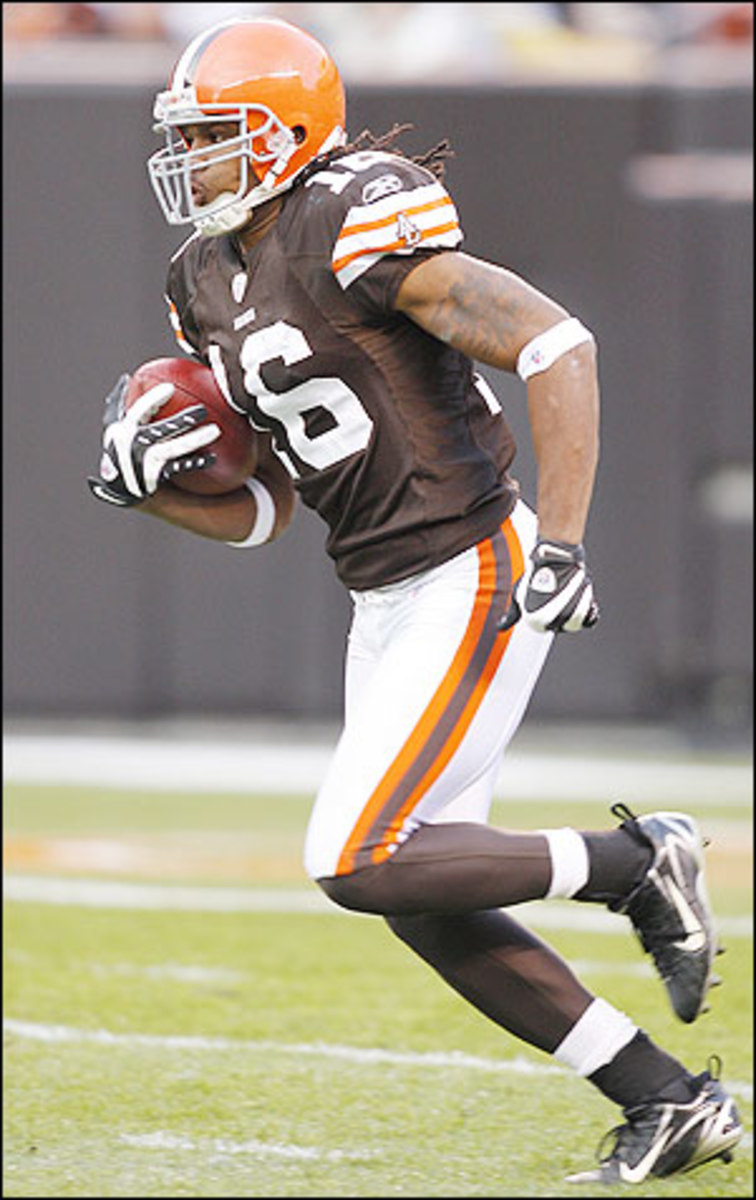Solid returns
As a former returner and special teams player, I pay close attention to the kicking game when watching NFL games. And I have been stunned by the amount of kick return touchdowns that we are seeing this year. Through 15 weeks, there have been 22 kickoff return touchdowns and 12 punt return touchdowns.
I placed a few phone calls to coaches and personnel people in the league to get their take on why top returners such as DevinHester, Leon Washington, Roscoe Parrish and Josh Cribbs are torching the league. Here are some of the possible reasons.
1. Lack of experience on coverage teams.
The salary cap has changed the composition of coverage units as teams are no longer able to stock their rosters with savvy veterans with extensive special teams experience. Teams are supplementing a core group of five or six "special teamers" with a host of inexperienced first- or second-year players on the coverage unit. And the inexperience of those players, many of whom never played special teams in college, creates blown assignments, which lead to big returns in the kicking game.
Young players often fail to realize the importance of avoiding blocks to the proper side or taking on the wedge squarely to limit the space in the running lanes. Therefore, they attempt to cheat the system by slipping under blocks and are often out of position when the returner hits the open lane. Hester's 89-yard kickoff return touchdown against Denver was the result of a Bronco defender incorrectly avoiding a block to the inside, which left a huge hole in the middle of the field.
2. Coverage units are using offensive players.
Most offensive players included on the team haven't played defense or tackled since their high school days. Their lack of familiarity with tackling often leads to improper angles to the ball or shoddy open-field tackling attempts.
3. Big returns are contagious.
The Browns believe that Cribbs is capable of taking every kick the distance, so they stick with the blocks a little longer because they believe the extra effort will result in a big return. The galvanizing effect of having a bona fide playmaker is huge.
4. Certain coaches are treating the kicking game like another offensive play.
Defensive-minded head coaches have focused more on returns in order to secure better field position. Teams run by former defensive coaches, such as the Patriots, Bears, Browns, Jets and Bills, all feature returners in the top 10 in kickoff and punt return yardage. These teams often devote the early portions of practice to the kicking game, instead of treating special teams like an afterthought at the end of practice. These teams are also more likely to use their starters on these units.
5. Teams are making returners a draft priority.
Personnel executive view players selected in the top half of the draft as likely starters. The number of returners who've gone that high show how significant this role is to teams. Devin Hester, Roscoe Parrish, Maurice Jones-Drew, Ellis Hobbs and Leon Washington were selected in the fourth round or higher because of their potential impact on special teams. Their effectiveness led to Ted Ginn Jr. being picked No. 9 overall by the Dolphins in April and Yamon Figurs going in the third round to the Ravens.
This kind of draft strategy hooks up the guys with big-play ability with the teams most interested in developing their return units, and the results are often very positive.






